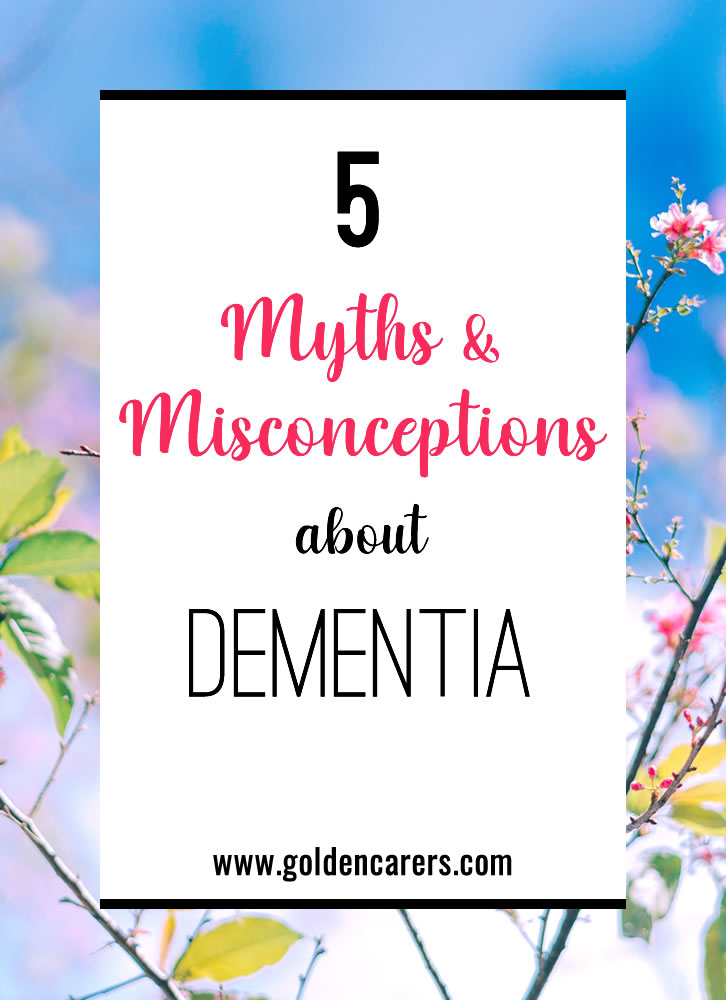
5 Myths and Misconceptions About Dementia
By Molly Wisniewski United States
Found In: ›Activities ›Articles ›Alzheimer's & Dementia

Because so many people in care homes have dementia, many will assume that all the residents in need of care have dementia.
However, this is not always the case, and leads to several common myths and misconceptions about dementia.
In this article we discuss 5 common myths and misconceptions about dementia.
Related Activities
Comments Post a Comment
 18th May 2018
Carer
18th May 2018
Carer

 22nd May 2018
Activity Professional & Writer
22nd May 2018
Activity Professional & Writer

 16th May 2018
Activity Coordinator
16th May 2018
Activity Coordinator

 16th May 2018
Activity Professional & Writer
16th May 2018
Activity Professional & Writer
 15th May 2018
15th May 2018

 16th May 2018
Activity Professional & Writer
16th May 2018
Activity Professional & Writer
 15th May 2018
Therapy Assistant
15th May 2018
Therapy Assistant

 16th May 2018
Activity Professional & Writer
16th May 2018
Activity Professional & Writer
 15th May 2018
Recreation Officer/AIN
15th May 2018
Recreation Officer/AIN

 16th May 2018
Activity Professional & Writer
16th May 2018
Activity Professional & Writer

 15th May 2018
Activities Manager
15th May 2018
Activities Manager

 16th May 2018
Activity Professional & Writer
16th May 2018
Activity Professional & Writer


 14th May 2018
Activity Professional & Writer
14th May 2018
Activity Professional & Writer

 3 Benefits of Video Games for Seniors
3 Benefits of Video Games for Seniors
 7 Ageist Habits You May Be Guilty Of (and How to Break Them)
7 Ageist Habits You May Be Guilty Of (and How to Break Them)
 12 Habits That Make You Look Professional
12 Habits That Make You Look Professional
 Sifting and Sorting Bins for Dementia Care
Sifting and Sorting Bins for Dementia Care


Where I come from some care workers need this education otherwise it is a big problem rendering care. Dementia is generally associated with all old people here, this should not be the case though. The cause of this in my opinion is lack of skills development from facility management to regular care workers. Because of the variety of diagnosis of clients in one facility, those not in management or higher in nursing care hierarchy will be ignorant and sometimes indifferent to this important aspect of the work.
I'll gladly share to relieve the pain it causes seeing elderly/client abuse because of ignorance and indifference.
May God bless all those actively participating to help a fellow in need.